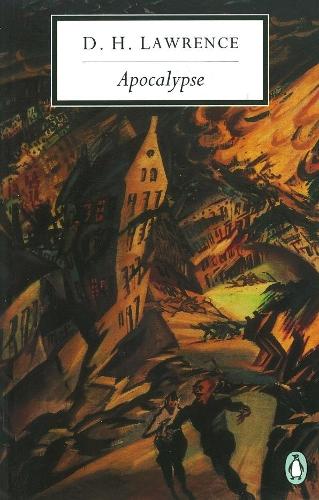
Apocalypse
Publishing Details
Apocalypse
By (Author) D. H. Lawrence
Introduction by Mara Kalnins
Notes by Mara Kalnins
Penguin Books Ltd
Penguin Classics
25th May 1995
United Kingdom
Classifications
General
Non Fiction
Cultural studies
228.066
Physical Properties
240
Width 133mm, Height 199mm, Spine 13mm
180g
Description
Written during the winter of 1929-30 and his last major work, Apocalypse is Lawrence's radical criticism of the political, religious and social structures that have shaped Western civilization. In his view the perpetual conflict within man, in which emotion, instinct and the senses vie with the intellect and reason, has resulted in society's increasing alienation from the natural world. Yet Lawrence's belief in humanity's power to regain the imaginative and spiritual values which alone can revitalize our world also makes Apocalypse a powerful statement of hope. Presenting his thoughts on psychology, science, politics, art, God and man, and including a fierce protest against Christianity, Apocalypse is Lawrence's last testament, his final attempt to convey his vision of man and of the cosmos.
Author Bio
D.H. Lawrence (1885-1930), English novelist, storywriter, critic, poet and painter, one of the greatest figures in 20th-century English literature. Among his works, Sons and Lovers appeared in 1913, The Rainbow in 1915, Women In Love in 1920, and many others.
